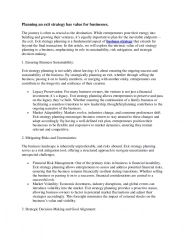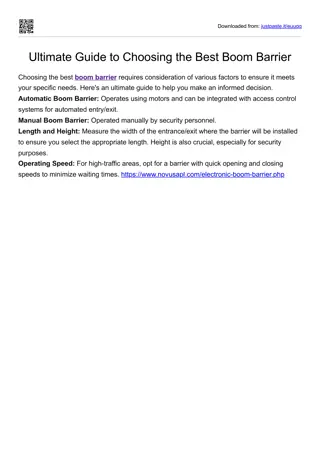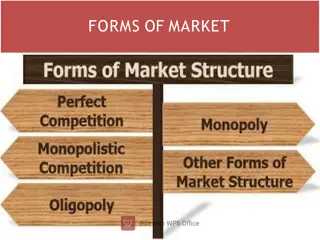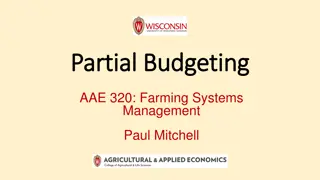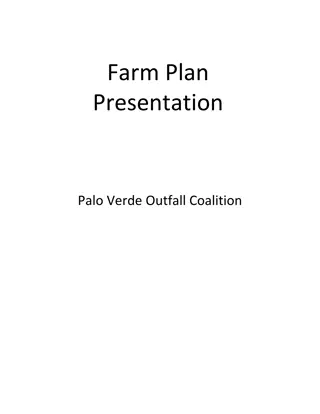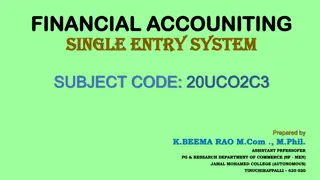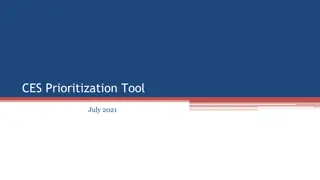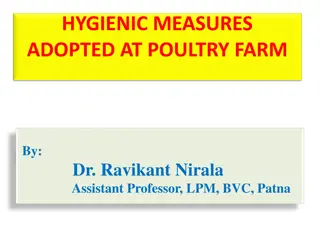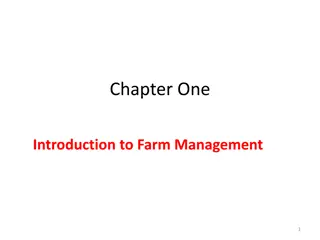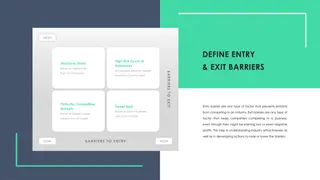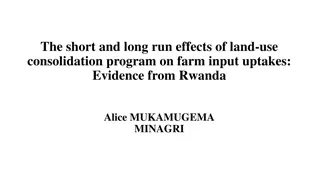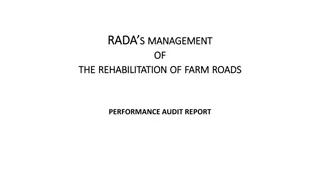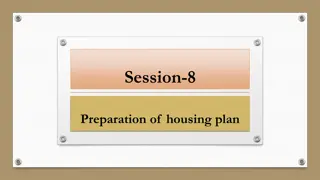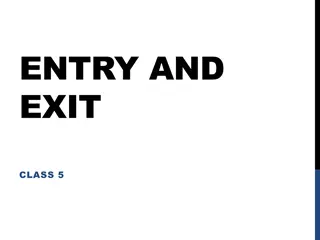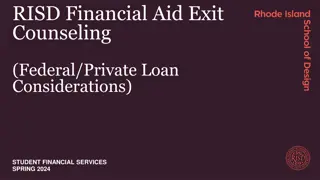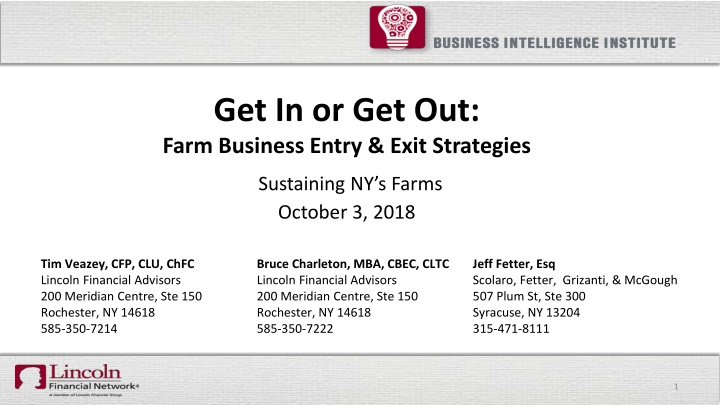
Farm Business Entry & Exit Strategies: Sustaining NY's Farms
Discover valuable insights on farm business entry and exit strategies presented by industry experts Tim Veazey, Bruce Charleton, and Jeff Fetter. Explore topics such as entity structure, financial planning, and equity transfer to help sustain New York's agricultural sector. This event focuses on crucial aspects of managing farm businesses effectively, ensuring future success in the dynamic agricultural landscape of NY.
Download Presentation

Please find below an Image/Link to download the presentation.
The content on the website is provided AS IS for your information and personal use only. It may not be sold, licensed, or shared on other websites without obtaining consent from the author. If you encounter any issues during the download, it is possible that the publisher has removed the file from their server.
You are allowed to download the files provided on this website for personal or commercial use, subject to the condition that they are used lawfully. All files are the property of their respective owners.
The content on the website is provided AS IS for your information and personal use only. It may not be sold, licensed, or shared on other websites without obtaining consent from the author.
E N D
Presentation Transcript
Get In or Get Out: Farm Business Entry & Exit Strategies Sustaining NY s Farms October 3, 2018 Tim Veazey, CFP, CLU, ChFC Lincoln Financial Advisors 200 Meridian Centre, Ste 150 Rochester, NY 14618 585-350-7214 Bruce Charleton, MBA, CBEC, CLTC Lincoln Financial Advisors 200 Meridian Centre, Ste 150 Rochester, NY 14618 585-350-7222 Jeff Fetter, Esq Scolaro, Fetter, Grizanti, & McGough 507 Plum St, Ste 300 Syracuse, NY 13204 315-471-8111 1
The Business Intelligence Institute is a group within Lincoln Financial Advisors Corp. that focuses on the needs of business owners. Lincoln Financial Network is the marketing name for Lincoln Financial Securities Corporation and Lincoln Financial Advisors Corp., affiliates of Lincoln Financial Group. Member s SIPC. Lincoln Financial Group is the marketing name for Lincoln National Corporation and its affiliates. Tim Veazey and Bruce Charleton are registered representatives of Lincoln Financial Advisors Corp. Securities and investment advisory services offered through Lincoln Financial Advisors Corp., a broker-dealer (member SIPC) and registered investment advisor. Insurance offered through Lincoln affiliates and other fine companies. Lincoln Financial Advisors Corp. and its representatives do not provide legal or tax advice. You may want to consult a legal or tax advisor regarding any legal or tax information as it relates to your personal circumstances. Jeff Fetter and Scolaro, Fetter, Grizanti, & McGough is not affiliated with Lincoln Financial Advisors Corp. CRN-2246102-091818 2
Introduction Introduction Importance Low High Low High Not Important Urgent Important Urgent Urgency The things we will discuss today fall here. These things, if not done, can create a major crisis once they occur, with no planning. Not Important Not Urgent Important Not Urgent 3
Integrated Capital Strategies Human Capital Family Employees Community Personal Financial Capital Business Capital Education & Other Strategic Framework Executive Benefits Residences Financial Plan Risk Entity & Structure Exit Retirement Management Strategy Estate Plan Exit Investment Planning Strategy Plan 4
Agenda 1. Business Owner Planning 2. Equity Transfer Planning 3. Personal Financial Planning 4. The Financial Planning Process 5
Business Owner Planning Entity Structure Business Culture & Strategy 6
Entity Structure Primary Considerations 1. Liability Protection to Owners Do liabilities (debt/other) of the business pass through to the owners? 2. Income Tax Attributes Do profits/losses pass through to owners or taxed to the entity? Tax treatment for buy-seller or after assets pass through estate 3. Restrictions on Ownership (for S-Corporations) 7
Entity Structure S-Corporation Pro s Self employment tax benefit Con s Tax inefficiency of stock sale Buyer needs $1.67 pre-tax to net $1.00 to pay seller Seller gets $1.00 nets $.75 Step-up in basis of stock not business assets Lack of flexibility (profits, growth, distribution, ownership) Limited Liability LLC Pro s Tax efficiency of LLC sale (underlying assets can be deductible) Step-up in basis can be allocated to business assets Greater flexibility (profits, growth, distribution, ownership) Con s Self employment tax cost on all earned income 8
Entity Structure Common Entity Structure: Operating Asset Ownership: Best owned by those actively involved LLC is preferable due to greater flexibility and favorable tax attributes Land Ownership: Tends to be best to hold this separate from operating assets Can be effective (create income) for retired or passive owners Every situation is unique every solution should be customized! 9
Tax Law Change Impact of 2018 Legislation Section 199 domestic production activities is repealed Bonus Depreciation : 100% bonus depreciation for assets acquired from 9/28/17 through 12/31/22 Section 179 Increased to $1,000,000 (with phaseout starting at $2.5M investment) New Section 199A Pass through entities/ C corporations 20% deduction on pass through income 21% flat C corporation tax rate Don t jump into a conversion from one tax status to another: Each situation is different and needs to be carefully reviewed with your tax advisor. In many cases, the decision is irreversible and we may see corrective legislation and/or regulations. 10
Business Culture & Strategy As the business grows and continues beyond the founding generation, it becomes imperative to articulate and record the business culture and strategy. This helps keep the key stakeholders aligned and focused on moving the business forward. 11
Business Culture & Strategy Key Questions Answered What does it mean to be part of this business? What behaviors are acceptable or desired? Where are we going? How will we get there? 12
Business Culture & Strategy Shared Core Values: What values are important to us? Business Mission: What is our primary business purpose? Business Vision: What does success look like? Strategic Initiatives: How should we focus our resources? Action Plan: Who needs to do what by when to carry it out? 13
Business Culture & Strategy ABC Inc. Strategic Framework - Updated 3/13/17 Culture Shared Vision Shared Values Mission Why we exist. Where we are going. What we value and how we behave. What we do. Thought Leadership Excellence Integrity Engagement Collaboration Social Responsibility Innovation Fun Through our collaborative design process, ABC works diligently to understand our clients mission, culture, and the specific needs of the community they serve. Empowered with this insight and informed by research-based knowledge, ABC engenders thoughtful and innovative design solutions, tailored to each project's unique goal. ABC Enriches the lives of those who live, learn, heal, and play in the environments we create. We believe that the quality of people's experiences, the depth of their interactions, vitality, and dignity can be enhanced through creative design that is sensitive to their wellbeing. Strategic Priorities - How will we succeed? (3-5 Year Priorities) Enhance Our Business Development and Marketing Processes Improve Our Sales and Design Processes Enhance Our Financial Capital Cultivate our Culture Develop our Human Capital 14
Equity Transfer Planning How to Get In? How to Get Out? 15
Exit Strategies Why Exit Planning? At some point, you ARE going to leave your business. The question is When? And on what Terms? 16
Exit Strategies Your equity is (potentially) my debt Assume business with 2 equal owners Assets $10,000,000 Debt $ 4,000,000 Equity $ 6,000,000 40% leveraged Owner A $3,000,000 Owner B $3,000,000 17
Exit Strategies If Owner B terminates Assets $10,000,000 Existing Debt $ 4,000,000 Buyout Debt $ 3,000,000 (B s Equity) Total Debt $ 7,000,000 Equity $ 3,000,000 Owner A owns 100%, but now is 70% leveraged Owner A $3,000,000 18
Exit Strategy Planning Assess three forms of Readiness 1. Personal Readiness 2. Business Readiness 3. Market Readiness Who is the likely or desired buyer? 1. Internal Partner, manager, business heir 2. External sale to third party 19
Personal Readiness Asset Base Required $____________ A) Mental Readiness what will you do with your time and talent after retirement? Value Gap $_________ B) Financial Readiness - what is your Value Gap? Current Savings $______________ 20
Business Readiness Business Readiness How well can the business function without you there? Can the balance sheet and cash flow withstand the required equity withdrawals? 21
Market Readiness Market Readiness Do you have something the market wants? Do economic conditions support needed capital? Do you have a backup plan? 22
Buy-Sell Agreements Buy-Sell Agreement defines the liability When is the agreement triggered? Death, Disability, Retirement, Termination, other Who buys? Entity, other owners, combinations How is the price determined? Agreed to annually, financial statement value, appraisal What are the payment terms? Down payment, note term and rate, collateral, guarantees 24
Buy-Sell Agreements How to Fund the liability? Death Disability Retirement Termination of Employment Divorce & other Creditor 25
Entry Strategies Three ways to acquire equity 1) Buy it from Senior Generation 2) Gifts or Inheritance from Senior Generation 3) Earn valuefrom sweat equity 26
Entry Strategies Buy it from Senior Generation Tax implications can be significant Cash flow and leverage issues can be significant 27
Entry Strategies Gifts or Inheritance from Senior Generation Timing of transfers Risk of working a long time with no transfer Someone changes their mind Some event (ie long term care) adversely impacts the assets or cash flow 28
Entry Strategies Earn valuefrom sweat equity Stock (or equity) Bonus Plans taxable event Stock Options (Corp) Profits Interests (LLC) Stock options and profits interest offer Tax Deferred Growth (if structured properly) 29
Personal Financial Planning Financial Independence Retirement Risk Management Investments Estate Plan Tax Strategy overlay 30
Financial Independence Financial independence means that: You have the financial resources to meet your goals. You are no longer dependent on a paycheck. If you are working it is because you want to 31
Financial Independence Determine the capital needed to provide for your family: To replace income: In retirement If either spouse becomes disabled If one spouse dies 32
Financial Independence Additionally, identify sources of capital to provide funds for: Education for children/grandchildren Other goals (i.e. travel, vacation home, etc.) Gifting to family or charity If either spouse needs Long Term Care 33
Estate Planning Goals and Issues 1. Income for spouse 2. Estate and Income Taxes 3. Family Legacy (children/grandchildren) 4. Estate Equalization - Business vs non-business heirs 5. Charity 34
Estate Planning Documents Needed 1. Will Direct what happens to your assets Who will inherit what? When will they inherit? In Trust or outright? Named representatives Executor, Trustees, Guardian for minor children 2. Trusts (if applicable) 3. Powers of Attorney Agent for legal transactions if incapacitated 4. Health Care documents Living Will and Health Care Power of Attorney 35
What has been done? Often these were done at different times with different people for different purposes Investments Estate Plan Financial Independence Risk Management Tax Strategy Overlay Business Plan 37
What We Do Your Life Goals Your Coordinated Plan Estate Plan Business Plan Tax Strategy Overlay Investments Risk Management Financial Independence 38
How We Do It M&A Advisor Business Owner Legal Advisor Legal Deal Structuring / M&A Process Exit Agreements, Estate Planning Strategies Advisor Financial Planner Insurance Agent C.P.A. Consultation Estate Planning, Wealth Protection Taxes Culture, Management, Marketing & Sales, Business Operations 39
Tim Veazey, CFP, CLU, ChFC Lincoln Financial Advisors 200 Meridian Centre, Ste 150 Rochester, NY 14618 585-350-7214 Bruce Charleton, MBA, CBEC, CLTC Lincoln Financial Advisors 200 Meridian Centre, Ste 150 Rochester, NY 14618 585-350-7222 Jeff Fetter, Esq Scolaro, Fetter, Grizanti, & McGough 507 Plum St, Ste 300 Syracuse, NY 13204 315-471-8111 41

